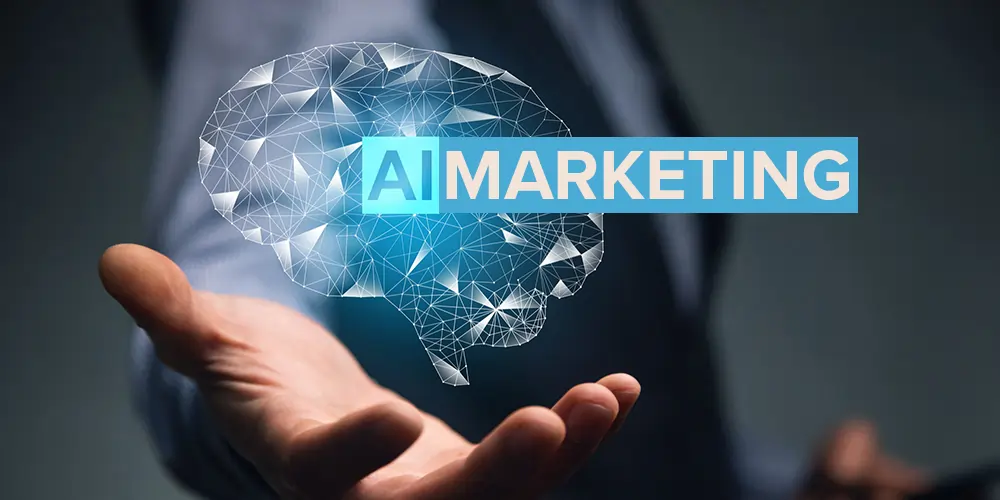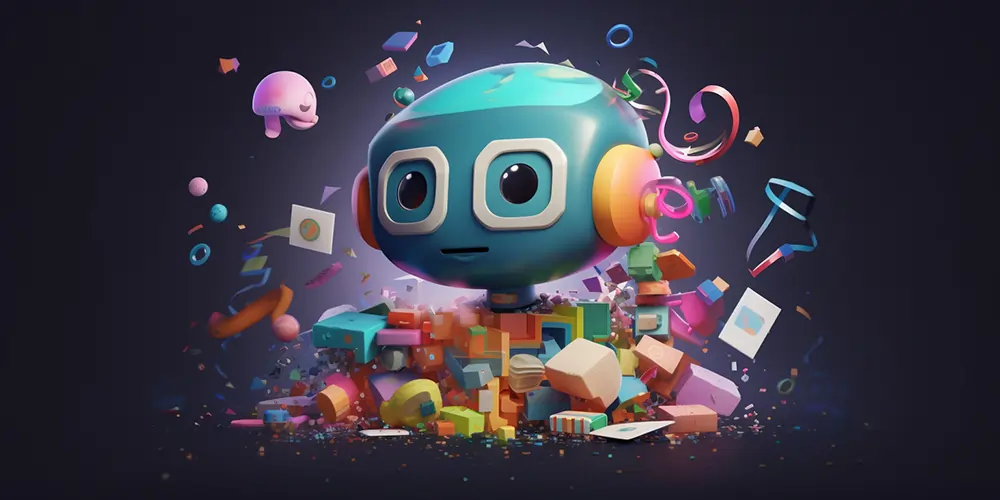When we think of AI, grand visions of futuristic tech often come to mind. But in the everyday world, especially in marketing, AI’s impact is more subtle and immensely practical.
It’s not about grand spectacles; it’s about making our tasks more efficient, our strategies sharper, and our audience engagement deeper.
This guide will explore how AI seamlessly integrates into marketing, offering tools and insights that make a difference.
How Do Marketers Use AI?
Have you ever wondered how your favourite brands seem to know what you’re looking for? Or how does that online ad feel eerily relevant to your recent searches? That’s AI in action, working behind the scenes in marketing.
Let’s get into some of its practical applications:
- Content Creation and Repurposing: AI isn’t just about crunching numbers; it’s got a creative side, too. It can help generate fresh content or transform existing materials into new formats, ensuring audiences always have something engaging to consume.
- Grammar and Copy Editing: We’ve all had those moments when a typo sneaks past our watchful eyes. AI tools like Grammarly act as a second pair of eyes, ensuring our messages are clear and error-free.
- Social Media Management: Managing multiple social platforms can feel like juggling. AI tools simplify this, helping schedule posts and suggesting content likely to resonate with followers.
- Chatbots and Customer Interaction: Those helpful chat pop-ups on websites? Often powered by AI, they ensure customer queries get timely responses, enhancing the overall user experience.
- Ad Management: AI analyses user behaviour to optimise ad placements. It’s like having a strategist ensuring your ads reach the most receptive eyes.
- Transcription and Meeting Assistance: AI listens in on meetings, not to eavesdrop, but to provide accurate transcriptions, ensuring no crucial point is missed.
AI in marketing is all about enhancing efficiency and personalisation. It’s the silent assistant, ensuring everything runs smoothly and effectively.
Potential Applications of AI in Marketing
While we’ve touched on some ways marketers use AI, let’s dive a bit deeper into its broader applications.
It’s not just about automating tasks; it’s about offering smarter, more tailored marketing solutions:
- Personalisation: Have you ever noticed how online recommendations often align with your preferences? AI analyses your behaviours and interactions to curate content and offers that are just right for you.
- Audience Segmentation: AI helps marketers group audiences based on interests or behaviours rather than sending generic messages to everyone. It’s like having separate conversations with friends who have different hobbies.
- Predictive Analysis: Imagine if you could predict tomorrow’s weather based on patterns from the past. AI does something similar for marketers, using past data to forecast trends and consumer behaviours.
- E-commerce Integration: Online shopping feels smoother with AI. From chatbot assistance to product recommendations based on your browsing habits, AI ensures a more seamless shopping experience.
AI offers tools that make marketing more intuitive and aligned with consumer needs. It’s like having a roadmap that guides you, ensuring you’re always on the right track.
Benefits and Challenges of Using AI in Marketing
Just like any tool or technology, AI comes with its set of pros and cons.
While it’s brought a lot of exciting possibilities to marketing, there are also challenges to consider. Let’s weigh them up:
Benefits
- Efficiency: AI tools can quickly handle vast amounts of data, making processes like audience segmentation or ad placement much faster than traditional methods.
- Improved ROI: With AI’s precision targeting and real-time insights, marketers often see better campaign results, ensuring every pound spent works harder.
- Better Customer Relationships: AI-driven chatbots or recommendation systems ensure customers get timely, relevant interactions, enhancing overall satisfaction.
- Data Insights: AI acts like a lighthouse in the vast sea of data, spotlighting patterns and trends that might otherwise be missed and guiding marketing strategies.
Challenges
- Training Needs: Just like you’d train a new employee, AI systems need to be taught to perform tasks, which can require time and resources.
- Data Quality: AI’s output is only as good as the data it’s fed. If the data is flawed, the results might be off the mark.
- Navigating Privacy Concerns: Using AI often means handling personal customer data. Balancing this with privacy regulations can be a tightrope walk.
While AI offers benefits that can enhance marketing efforts, knowing its challenges is essential. It’s all about using AI wisely and making informed decisions.
AI in Marketing – A Balanced Viewpoint
As we’ve briefly looked at AI in marketing, it’s evident that AI is more than just a buzzword. It’s a tool; like any tool, it’s about how we use it.
With its vast potential to make marketing more precise, personalised, and efficient, AI truly has much to offer.
For marketers, the key lies in striking a balance. After all, at the heart of every marketing strategy is the goal to connect, engage, and resonate. With AI as a trusted ally, achieving these objectives will become more manageable.




